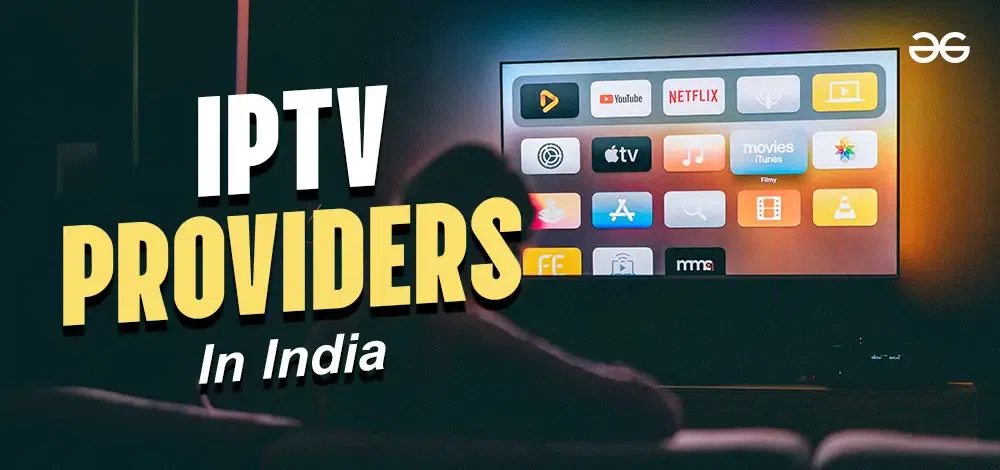The way we consume television and video content has evolved drastically over the years. From traditional cable services to digital streaming platforms, the landscape of television entertainment continues to shift. One of the most revolutionary developments in recent years is the rise of iptv, or Internet Protocol Television. IPTV is changing how people watch TV, offering more flexibility, personalization, and a wide range of content at the click of a button. In this article, we will delve into what IPTV is, its advantages, challenges, and the future of television viewing.
What is IPTV?
At its core, IPTV (Internet Protocol Television) refers to the delivery of television content over the internet, rather than through traditional methods like satellite, cable, or over-the-air broadcasts. Instead of using coaxial or satellite cables to transmit the signal, IPTV uses internet protocols, which makes it possible to stream high-definition video directly to various devices such as TVs, smartphones, tablets, computers, and even gaming consoles.
IPTV can offer live TV streaming, on-demand content, and even recorded shows and movies. The service is delivered in three main formats:
- Live IPTV: This format allows users to watch live television broadcasts, just like they would with a regular cable or satellite subscription. However, the key difference is that it is streamed over the internet.
- Time-shifted IPTV: This allows users to watch shows or sports events after they have aired. Essentially, it enables “catch-up TV,” where you can watch content at a later time.
- On-demand IPTV: This format is similar to streaming services like Netflix, where users can access a wide variety of movies, TV shows, documentaries, and other content on demand, with the ability to pause, skip, or fast-forward.
Advantages of IPTV
- Flexibility: One of the most significant advantages of IPTV is its flexibility. Viewers can choose from a wide range of content, watch it whenever they want, and on almost any device. Unlike traditional cable, IPTV allows users to stream content on their own terms, from anywhere with an internet connection.
- Cost-Effective: IPTV often comes at a lower price point than traditional cable or satellite services. With the ability to access content through the internet, users may find that they only need a basic internet connection to access a variety of channels and on-demand content, eliminating the need for expensive cable or satellite subscriptions.
- High-Quality Streaming: IPTV providers often offer high-definition (HD) or even 4K streaming options. As long as the user has a high-speed internet connection, IPTV can deliver superior video quality with minimal buffering or interruptions.
- Interactive Features: IPTV enables interactive features such as on-screen guides, video-on-demand libraries, and even interactive advertisements. Some IPTV services also offer functionalities like pausing, rewinding, and fast-forwarding live TV.
- Wide Selection of Content: IPTV services offer a wide variety of programming, including local and international channels, live sports, movies, TV shows, and more. Some IPTV providers also allow access to specialized content like documentaries, educational programs, and niche genres, catering to diverse tastes.
Challenges and Limitations of IPTV
- Dependence on Internet Connection: Since IPTV relies entirely on an internet connection, the quality of the service is dependent on the strength and stability of the user’s internet. A slow or unreliable connection may result in poor streaming quality, buffering, or interrupted service.
- Limited Availability in Some Regions: While IPTV is becoming more widespread, certain regions still face limitations in availability. Some countries or areas with less-developed infrastructure may not have reliable access to high-speed internet, limiting the reach and effectiveness of IPTV.
- Legal and Piracy Concerns: Not all IPTV services are legal. Some providers offer access to pirated content or unauthorized broadcasts, which can be a legal and ethical concern. Users must be cautious when selecting IPTV services to ensure they are subscribing to legitimate platforms.
- Device Compatibility: While IPTV is compatible with a range of devices, not all devices may support every IPTV service. Some services may require users to install specific apps or have compatible hardware to stream content effectively.
The Future of IPTV
As the internet becomes faster and more reliable, and with the continued growth of streaming services, IPTV is set to be a dominant force in the future of television viewing. The flexibility it offers—such as watching on multiple devices, streaming on-demand content, and accessing international content—aligns with the growing demand for convenience and choice in entertainment.
Several trends point to the future of IPTV:
- Integration with Smart Home Devices: IPTV services will likely become more integrated with smart home technologies, enabling users to control their TV, stream content, and even interact with voice assistants like Amazon Alexa or Google Assistant.
- Cloud-based DVR and Storage: In the coming years, IPTV providers may offer even more advanced storage options, allowing users to store their favorite content in the cloud and access it from any device.
- Enhanced Personalization: As AI and machine learning technologies advance, IPTV services will likely offer even more tailored recommendations based on individual viewing habits, making it easier for users to discover new content.
- Improved VR and AR Content: Virtual Reality (VR) and Augmented Reality (AR) are on the rise, and IPTV could incorporate these technologies to offer immersive viewing experiences, especially in live events like sports or concerts.
Conclusion
IPTV has already reshaped the way we consume television, providing flexibility, affordability, and an extensive range of content. While there are some challenges, such as the need for a reliable internet connection and concerns about legality, the future of IPTV looks promising. With continuous improvements in streaming technology, device compatibility, and personalization, IPTV is poised to become the dominant medium for TV viewing in the years ahead. Whether you’re looking to cut the cord or just explore new ways to access your favorite content, IPTV offers an exciting glimpse into the future of entertainment.
